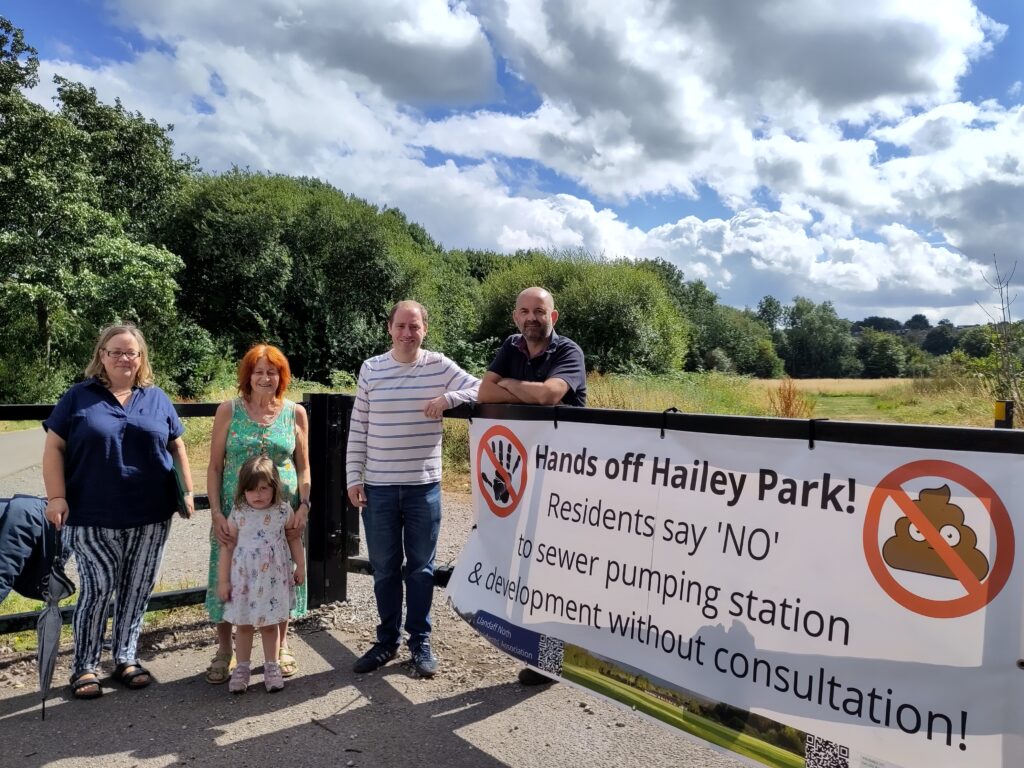As the Welsh Government is recruiting the next Future Generations Commissioner for Wales, Rhys ab Owen MS argues the new Commissioner will need stronger enforcement powers.
I visited Hailey Park in the north of Cardiff this week to meet with campaigners concerned about the development of a sewer pumping station at the park.
The local people told me they wanted to use the Well-being of Future Generations (Wales) Act 2015 and to work with the Commissioner created by that Act to protect the green lungs of their community.
As the Welsh Government prepares to appoint the next Future Generations Commissioner for Wales, I would like to take the opportunity to ask again that the new commissioner is given sufficient enforcement powers.
Since the Future Generations Act was passed there have been several attempts to use it to protect various community assets, from wildlife and natural reserves (with early appeals against the M4 relief road in Newport), to schools (seen with Cymer Afan Comprehensive). On each occasion, the public authority under challenge successfully argued that the well-being duty placed on public bodies by the Act was too general and aspirational to be enforceable. To quote a barrister in one of the applications, Rhodri Williams QC, the Act is inherently ‘toothless’.
Acts of Parliament need to be enforceable, not only aspirational, and that rhetoric must be turned into action.
The whole point of the Future Generations Act was to put citizens at the centre of decision-making processes and to give the public a legitimate stake in contributing to governmental policy. What, then, is the point of the law if people and communities can’t utilise it to protect their local assets? Acts of Parliament need to be enforceable, not only aspirational, and that rhetoric must be turned into action. The law must hold public bodies to account rather than be a mere tick-box exercise.
Fundamentally, the Act is, to quote the former Lord Chief Justice Lord Thomas of Cwmgiedd ‘not specific and tight enough’. It’s both too general and too vague in its method and aims. It does not hold politicians and public bodies to account, and it does not give the citizens of Wales legally enforceable rights.
Gofod i drafod, dadlau, ac ymchwilio.
Cefnogwch brif felin drafod annibynnol Cymru.
This must become the focal point of how to empower the Future Generations Act and make it worthy of the lavish praise it receives. This is a chance for us in Wales to influence our future, and the future of the world. We can lead the way. We can show other nations how to protect our communities, our environment and how to make sustainable development the cornerstone of governance.
That is why it is time for more post-legislative scrutiny of the Act. In a short debate in the Senedd I called for this legislation and the Commissioner to truly become the envy of the world. For that to happen the Act needs enforcement powers.
It’s time to enable the Act to live up to its original expectations.
When an Act does not deliver on its intention then it needs to be amended to do so. Whilst a Labour backbencher the current Counsel General, Mick Antoniw described the principles of the Act during its passage through the Senedd in 2014 as far too loose and woolly. When I questioned him in plenary on the Act in late November 2021 he said, ‘I think, with all legislation, once it has been in force for a while, it does need to be reviewed’.
This certainly needs to happen with the Future Generations Act. This piece of legislation has failed to live up to its radical promise to provide a voice to the voiceless and to empower local communities.
It’s time to enable the Act to live up to its original expectations.
The Future Generations Act should challenge all decision makers to think about the long term implications of policies, and ensure that we leave a better legacy for our young people and those yet to be born. For this to happen the Act and the Commissioner should have sufficient legislative teeth to enforce public bodies to be mindful of the principles of the Act. Not to do so will mean public bodies will continue to ignore the Act when it is deemed too much of an inconvenience. Not to do so will mean that communities like those around Hailey Park will not be fully empowered to protect their beloved green spaces. In a climate and biodiversity emergency, it is imperative that this Act and Commissioner receive the necessary powers.
All articles published on the welsh agenda are subject to IWA’s disclaimer.





